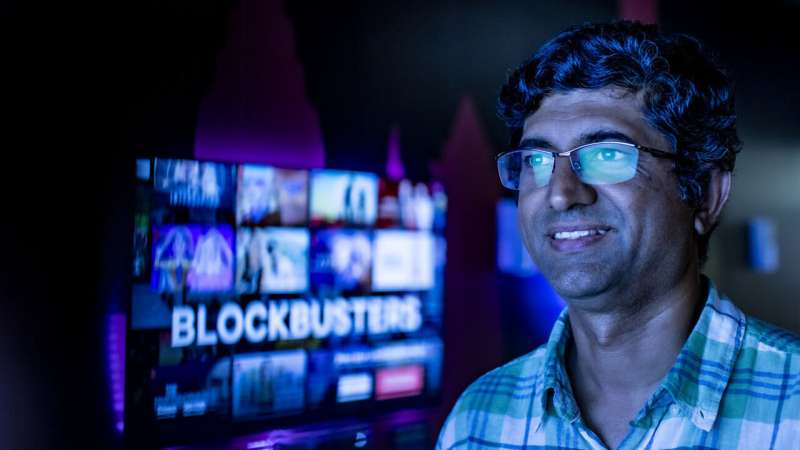This article has been reviewed according to Science X's editorial process and policies. Editors have highlighted the following attributes while ensuring the content's credibility:
fact-checked
peer-reviewed publication
trusted source
proofread
Don't impinge the binge: Why viewers choose to binge-watch television series

Look at some of the most successful and highest-reviewed television shows of the last several years: "Ozark," "Stranger Things," "Bridgerton," "Wednesday," "The Boys." In all instances, these shows premiered in a format where either multiple or all their episodes were available for viewing at once.
It's a format that lends itself to "binge-watching," and a new study by Temple University faculty member Vinod Venkatraman finds that it is this format that helps make these shows so appealing.
Recently published in the Journal of Experimental Psychology: Applied, the study titled "Planning-to-binge: Time allocation for future media consumption" analyzes why viewers choose to binge-watch. The study, which was co-authored by Joy Lu of Carnegie Mellon University's Tepper School of Business and Uma R. Karmarkar of the UC San Diego's Rady School of Management, found that consumers often make plans to binge-watch media content ahead of time, and that shows with more sequential, interconnected episodes are more likely to be binge-watched.
"One of the key distinctions that we show is that binge-watching goes against this typical notion that it is something that results from a lack of self-control. When we think of the word, we think of problematic impulsive behavior that you do not have control over, like binge-eating and binge-drinking, but it's not like that with binge-watching," said Venkatraman, associate professor in marketing and director of the Center for Applied Research in Decision Making in Temple's Fox School of Business.
"In most instances, viewers are planning to binge-watch ahead of time, and that is one of the first significant contributions of this research because it's the opposite of what you think of when you hear the word 'binge.'"
Within the recently released journal article, Venkatraman and his colleagues outline the results of several specific studies related to binge-watching preferences. For one study, they recruited nearly 800 participants through Amazon's crowdsourcing tool, Mechanical Turk. They then had the participants fill out a survey related to whether they would prefer to watch a sequential, interconnected series or a show where each episode tells a different story and can be watched on its own.
"What we found was that the more sequential a show is, the more likely you are to binge-watch it," Venkatraman said.
For another study, the group recruited 200 adults through MTurk and had them share insights regarding whether they would delay consumption of television series until a significant number of episodes were available for streaming. Overall, 75% of that survey's participants noted that they would rather delay consumption, so they could instead binge-watch sequential shows.
"This goes against this idea of impulsive behavior," Venkatraman said. "What we have figured out is that sometimes, people are actually resisting the urge and waiting for more episodes to become available, so they can watch them together in one sitting."
In an additional follow-up survey, about two-thirds of the participants noted that they would pay money to have access to all a sequential show's episodes together, so they would then have the option to binge-watch.
Venkatraman, Lu and Karmarkar also applied their research to other mediums, such as asynchronous online learning. When given the option, participants preferred to have access to all online video lectures at once when the lectures were sequential, especially when the lecturer is the same for each video.
"This suggests that it's not only something that's specific to entertainment media, but it also extends beyond that into the edutainment space where people are showing a similar pattern of behavior," Venkatraman said.
Moving forward, the study has significant implications for entertainment executives of streaming services like Netflix, Hulu, Max, Peacock, Paramount+, Amazon Prime and Disney+. If they are releasing a television series with sequential episodes, it is prudent to release in a format where at least some or all its episodes are immediately available for streaming. Generally, shows that are interconnected also seem to be enjoyed by larger audiences.
"Even if the shows have episodes that can be watched independently, it helps for there to be some underlying theme that runs throughout the episodes," Venkatraman said. "If you have some narrative, it is going to make it more likely to be watched up together."
More information: Joy Lu et al, Planning-to-binge: Time allocation for future media consumption., Journal of Experimental Psychology: Applied (2023). DOI: 10.1037/xap0000482



















